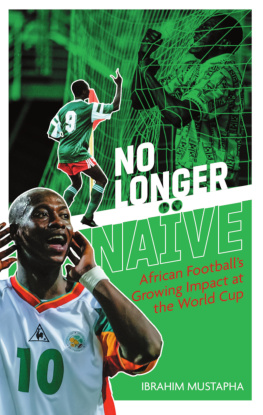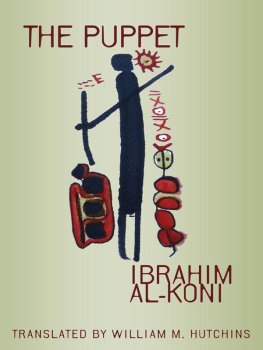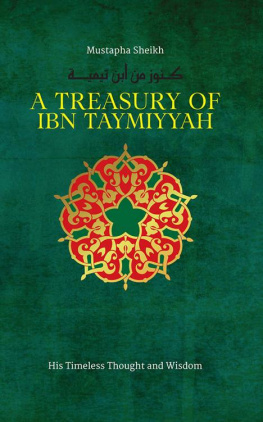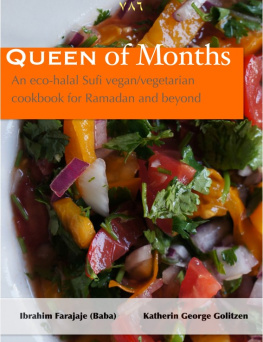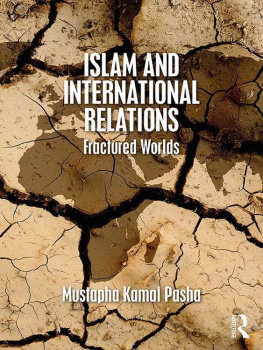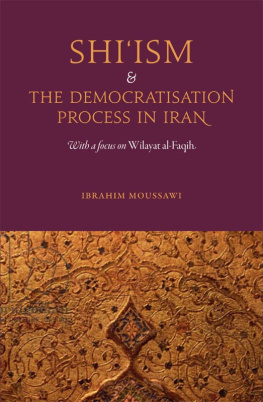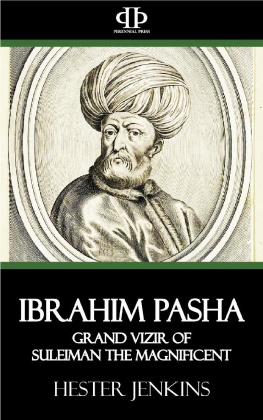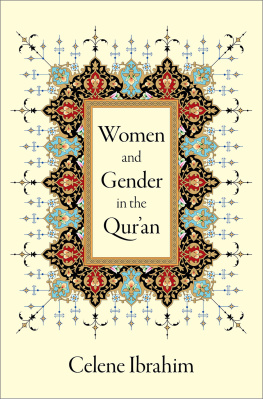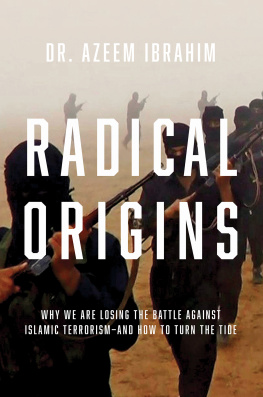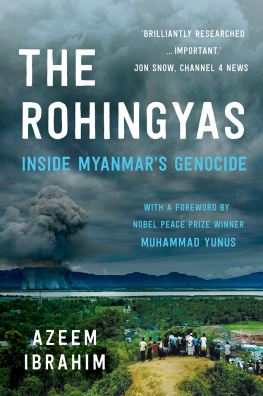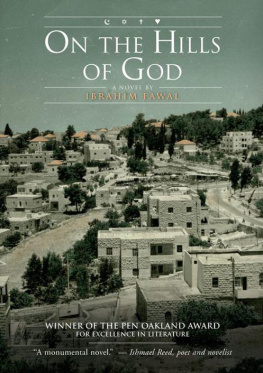Ibrahim Mustapha - No Longer Naïve
Here you can read online Ibrahim Mustapha - No Longer Naïve full text of the book (entire story) in english for free. Download pdf and epub, get meaning, cover and reviews about this ebook. year: 2021, publisher: Pitch Publishing Ltd, genre: Home and family. Description of the work, (preface) as well as reviews are available. Best literature library LitArk.com created for fans of good reading and offers a wide selection of genres:
Romance novel
Science fiction
Adventure
Detective
Science
History
Home and family
Prose
Art
Politics
Computer
Non-fiction
Religion
Business
Children
Humor
Choose a favorite category and find really read worthwhile books. Enjoy immersion in the world of imagination, feel the emotions of the characters or learn something new for yourself, make an fascinating discovery.
- Book:No Longer Naïve
- Author:
- Publisher:Pitch Publishing Ltd
- Genre:
- Year:2021
- Rating:3 / 5
- Favourites:Add to favourites
- Your mark:
- 60
- 1
- 2
- 3
- 4
- 5
No Longer Naïve: summary, description and annotation
We offer to read an annotation, description, summary or preface (depends on what the author of the book "No Longer Naïve" wrote himself). If you haven't found the necessary information about the book — write in the comments, we will try to find it.
No Longer Naïve — read online for free the complete book (whole text) full work
Below is the text of the book, divided by pages. System saving the place of the last page read, allows you to conveniently read the book "No Longer Naïve" online for free, without having to search again every time where you left off. Put a bookmark, and you can go to the page where you finished reading at any time.
Font size:
Interval:
Bookmark:



First published by Pitch Publishing, 2021
Pitch Publishing
A2 Yeoman Gate
Yeoman Way
Durrington
BN13 3QZ
www.pitchpublishing.co.uk
Ibrahim Mustapha, 2021
Every effort has been made to trace the copyright.
Any oversight will be rectified in future editions at the earliest opportunity by the publisher.
All rights reserved under International and Pan-American Copyright Conventions. By payment of the required fees, you have been granted the non-exclusive, non-transferable right to access and read the text of this e-book on-screen. No part of this text may be reproduced, transmitted, downloaded, decompiled, reverse-engineered, or stored in or introduced into any information storage and retrieval system, in any form or by any means, whether electronic or mechanical, now known or hereinafter invented, without the express written permission of the Publisher.
A CIP catalogue record is available for this book from the British Library
Print ISBN 9781785317965
eBook ISBN 9781785319778
--
eBook Conversion by www.eBookPartnership.com
FOR DAD
FIRST AND foremost, I would like to thank Dad for getting me into football and of course, constantly talking me through the complicated politics of Africa and all its foibles. Rest in peace, Papa. This is for you. I also want to thank Mum who has always encouraged me to be creative, and my sister Ayisha for always keeping me on my toes. To my wonderful Kate for all your support and proofreading, even though the subject is outside of your particular field of interest, and to little Isabella, despite tearing up my notes! To Paul and Caroline for babysitting help and space to get work done, and to Jeff for the helpful advice. Thanks to Paul and Jane, and Pitch Publishing for taking a chance and trusting me. And finally, thanks to everyone who was happy to help and speak to me on various aspects of the work during my research: Gary Al Smith, Paul Ezeoke, Ahmed Atta, Dr Adel Saad, Meher Mezahi, Rahman Osman, and the guys at Maghrib Foot.
IF YOU had the good fortune to represent your country at a World Cup, what impression would you want to leave? Beyond the dream of actually lifting the trophy and playing a significant role in that, how, if you had the chance to decide, would you want to be remembered? A great goal? An unforgettable winner? A hat-trick? A fantastic goal-preventing tackle or save?
Even in infamy you could make a name for yourself. Through a contentious goal scored with your hand, for example. Or perhaps planting a headbutt on an opponent as the world watches on in shock during the final. How about such a blatant and absurd transgression of the most basic laws of the game that is so laughable, it virtually brings humiliation and shame on yourself, your country and, in fact, your entire continent?
On 22 June 1974, Mwepu Ilunga would write his name into World Cup folklore for this very reason. On this fateful day, in front of a reported 35,000 fans packed inside Gelsenkirchens Parkstadion in West Germany, reigning world champions Brazil are leading 2-0 against tournament debutants Zaire. With a little over ten minutes to play, the South Americans have a free kick some 25 yards from goal. Seleo superstars Rivellino and Jairzinho stand over the ball, licking their lips at the opportunity presented to them. Both players are already on the scoresheet and a brief discussion ensues as to who will take the kick, potentially adding to their tally. The whistle blows and Jairzinho appears to back off slightly while gesturing to his team-mate. The Zaire defensive wall stands tall in preparation. All but one man. Ilunga defiantly breaks free, charging towards the stationary ball before taking a huge swipe. A shocked Rivellino momentarily cowers slightly, believing Ilunga is aiming for him, before looking up to see the Adidas Telstar Durlast flying away into the distance. The moustachioed Brazilian forward is simply left stunned and confused, as are the rest of the players on the pitch.
The TV camera, caught as much by surprise as everybody else, fails to track the ball so the image of Ilungas kick soaring away off screen makes the scene even more of a visual oddity for those watching. What on earth did he do that for? screams a puzzled John Motson on commentary. As Romanian referee Nicolae Rainea marches over to issue a yellow card, Ilunga puts his hand to his mouth, miming the action of a whistle, apparently suggesting he thought the ball was in play. After being booked, the player then performs a sarcastic bow towards Rainea, arms outstretched for maximum effect, before returning to the wall to prepare for a retake.
The free kick went down in history and for many, many years saw both player and his team as the subject of mockery, with the widely accepted explanation being that Ilunga, Zaire and African footballers in general didnt understand the rules of the game.
The journey to that fateful moment was a long one. Despite the land mass itself existing since Earths very beginnings and being widely accepted as the birthplace of humankind, Africa in the 1970s was, by Western standards, viewed as relatively young and nave compared to the rest of the world. Most countries on the continent had only recently achieved independence and while many were still trying to find their feet, those same feet were also trying to make an impression on the football pitch.
What better way to celebrate new-found national identity than through football, one might ask? And what better setting to do this than at the World Cup? After successfully creating its own tournament in the form of the African Cup of Nations (AFCON), the aim of every football-playing African nation was to eventually compete on the global stage.
Complicated colonial relationships with former rulers both helped and hindered this ambition over time, with some nations quickly using the link to their past as an advantage, while others needed far longer to become established as they struggled to unburden themselves from those shackles. North Africa were the early pace-setters, primarily due to the regions relatively short distance, and crucially, access to Europe. For central African nation Zaire to buck that trend in 1974 was quite the achievement.
African football was still very much behind Europe and South America but despite Zaires glaring failings, steady growth and improvement continued to cascade south. World Cup representation eventually increased, and not just to make up the numbers as famous victories against the so-called established elite earned African football greater respect. It was almost inevitable that the continent would eventually host the competition, and when South Africa was awarded the 2010 tournament, it was further proof of how far things had moved on since 1974 and that kick.
But the kick was inescapable. Zaire had left an unfavourable impression as only the third African participants in the history of the World Cup. Despite its notoriety, Ilungas moment of madness itself was just a small part of a chaotic showing, with behind-the-scenes problems also undermining their brief moment in the spotlight. The nave stereotype that outsiders commonly held about Africa both on and off the pitch had simply been fuelled further. This was African football for the uninitiated, and there was much work to be done to undo this perception and change this negative image.
Font size:
Interval:
Bookmark:
Similar books «No Longer Naïve»
Look at similar books to No Longer Naïve. We have selected literature similar in name and meaning in the hope of providing readers with more options to find new, interesting, not yet read works.
Discussion, reviews of the book No Longer Naïve and just readers' own opinions. Leave your comments, write what you think about the work, its meaning or the main characters. Specify what exactly you liked and what you didn't like, and why you think so.

